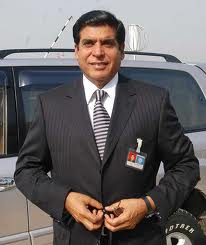
Her ideological moorings were always with the educated middle class, and the poor drawn to her by her uncanny ability to connect. As the Pakistan People’s Party (PPP) government headed by President Zardari — a government, and party, indisputably now of the elite — replaces the Prime Minister who, at his bidding defied the highest court and was summarily disqualified, with another and yet another, Pakistan is gripped by a crisis anew.
How long before the new Prime Minister(s) go down the same route? How far will the SC go in punishing a PM, when it is the President, accused of corruption, who is the actual target? While the immunity that the Presidential office gives a sitting President makes it almost impossible to prosecute Mr Zardari, how will the judiciary, which has “played executive, judiciary and legislature”, set this in motion? A judiciary that is no longer playing to the ISI.
The clamour for fresh elections to be overseen, not by Mr Zardari but by an independent caretaker government, is growing shriller. But the President will fight it tooth and nail. Already, in choosing the path of least resistance he is treading with caution. If “polls” do come to shove, much rests on whether son, heir and party president Bilawal Bhutto has understood that it’s time to reclaim the party from the clutches of the Zardari rich men’s club and chart an independent course.
That the confrontation with the CJ has brewed for some time is no secret. And clearly, reports that the trigger to annul the National Reconciliation Ordinance which allowed the Bhutto-Zardari couple as well as another former Prime Minister, Nawaz Sharif, to return home from military-imposed exile, stemmed from Mr Zardari’s unwillingness in 2009 to extend the Chief Justice’s term, is deeply troubling. As is the imputation that the sudden disqualification of Mr Gilani only came into force because the PPP dirty tricks brigade had systematically thrown mud on CJ Iftikhar Mohammed Chaudhry’s son Arsalan, and by that token the CJ himself, in a bid to undermine the judiciary.
In fact, the SC ruling two months ago seemed to sort of settle the matter by giving outgoing PM Yousaf Raza Gillani a 30-second (!!) punishment, while the Speaker of the House’s rejection of the SC’s ruling was met with silence. In not appealing against the judgment, it’s clear that Mr Zardari never intended reconciliation.
His strategy: stretch out the theatrics for as long as possible, play both martyr and victim and milk the sympathy wave for yet another legitimate PPP government.
But here’s the rub. The CJ-led judicial protests, which tasted political success in engineering the exit of Musharraf, and set it on a path of confrontation with the Zardari leadership has surprisingly widespread support. There are many in the Opposition, the establishment and the PPP who are exulting in what they see as the end of a PPP government that has moved away from the ideological moorings that once made the PPP so feared by the military-ISI. They want re-engagement with Washington. They want to redial 2007. They want the Taliban back in the box.
“This is not our PPP, it’s the PPP masquerading as Zulfikar Ali Bhutto and mohtarma’s (Benazir) party,” said a supporter at Bibi’s birthday celebrations in Lahore. “The hope that she held out for a better Pakistan when she returned has dissipated,” he said. And this is the tragedy that stalks this nation. This elected civilian government will join the ranks of all the others that have not completed their term of office. And the clear political overtones of the battle being waged by the SC, against this government — imperfect as it may be, though it’s unclear at who’s behest — puts a huge question mark over Pakistan’s troubled path to democracy.
While the Army was once the game-changer, sending the infamous Rawalpindi Xth Corps wheeling into the capital, to lay siege to the PM’s house, today that dubious distinction is held by the judiciary. The judiciary’s aim is to ensure this Parliament no longer stands in the way of prosecuting Mr Zardari. This is why the man he picks as his PM is the key. The constitutional powers invested in the PM are the only armour the President has left. Mr Zardari, however, is working on an additional tack: appoint one tainted man after another — Makhdoom Shahabuddin is accused in an ephedrine scandal, and Raja Pervez Ashraf is allegedly involved in power plant kickbacks — and wait for the sympathy wave to build up as each man falls afoul of the law.
With the SC in the driving seat, however, Mr Zardari may soon be a President without a government. Pakistan, back to shadow boxing as usual.
